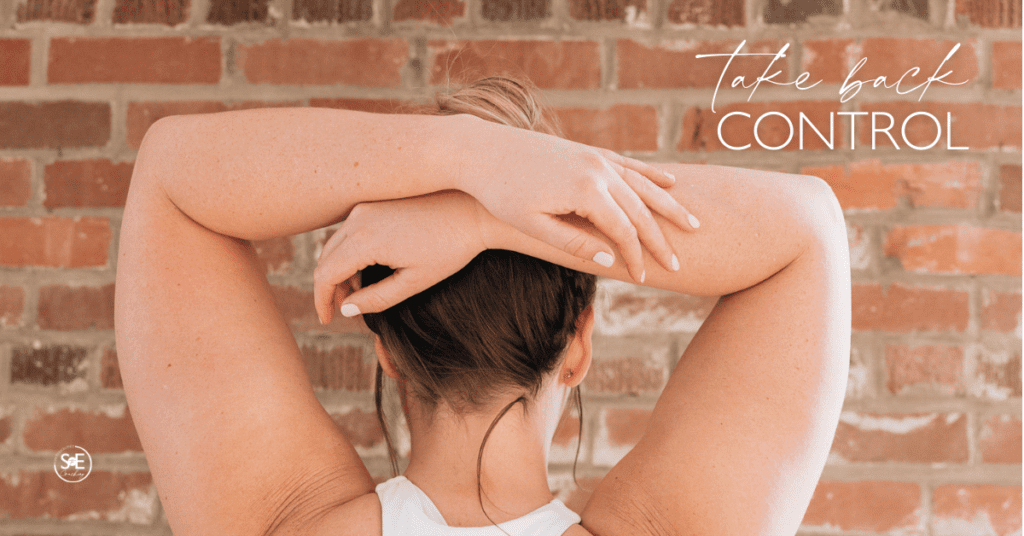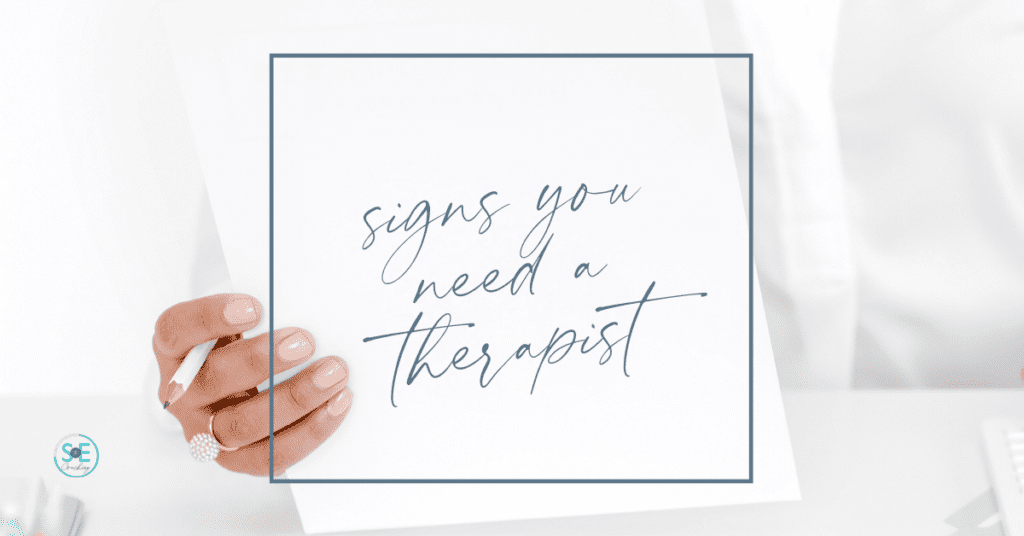
3 Little Known Ways to Master Your Habits
How are those New Year’s resolutions coming along? We all started the year off with some bold goals and if your motivation is dwindling, that’s okay! You do so much already and it’s common to slip into new routines due to the winter doldrums, or just life. Now is the perfect opportunity to pause. Let’s reevaluate the obstacles blocking your aspirations.
Maybe your jeans are fitting a bit tighter than you remember (after all, you’ve been in fitness clothes for most of the year!). Or maybe you’ve been drinking more and ignoring your friend’s suggestion to seek professional help for your mental health. Whatever the case, this blog post is for you. No shame. No judgment. Just solutions.
Reign In The Stress Eating
Ahhh, stress eating. We’re all guilty of it from time to time. Whether it’s to satisfy our cravings, boredom, or stress, our unhealthy eating habits have been running a bit unchecked these days. This can be dangerous since it causes your emotional and physical health to suffer.
Get active → Be honest with yourself, sis—have you been skipping workouts? If your pants are fitting a bit snug around the hips, it’s time to get moving! The American Heart Association recommends at least 150 minutes (2.5 hours) per week of medium-intensity exercise. Our general rule of thumb: Move more, sit less!
- Stay hydrated → It’s common to confuse thirst with hunger. Combat this by maintaining proper hydration and drinking the recommended eight 8-ounce glasses of water a day. If that’s too difficult, remember—you don’t have to drink it all! Here are 19 Water-Rich Foods That Help You Stay Hydrated.
- Prevent boredom → We’re all guilty of reaching for a snack when we’re bored. Make good use of spare time by channeling it into new hobbies and skills. Extra points if it’s outdoors or keeps you active! Maybe it’s time to take that dance class you’ve had your eye on. Or try to grow that green thumb by taking up gardening. Whatever it is, it’s never too late to try something new!
- Remove temptations → Walking past that jar of cookies every day isn’t doing your sanity any favors. Just the sight of it is enough to tempt you into breaking your resolve! Eliminate this temptation by keeping tasty treats tucked away in your cupboard. This way you don’t have to look at it and torture yourself with goodies you can’t have.
- Practice portion control → Large portion sizes are believed to contribute to obesity, overeating, and weight gain. There’s no pressure to eat everything on your plate. Instead, try using smaller dinnerware and not eating straight from the food container. Here are 9 Tips to Measure and Control Portion Sizes.
- Don’t restrict yourself → Restrictive diets don’t work over time. They’re ineffective and far more harmful than helpful, especially since they increase your stress levels and lead to binging. Do not deprive your body of the nutrients it needs to thrive. Instead, develop a healthy relationship with food and allow yourself to indulge every once in a while.
- Get creative in the kitchen → Have your home-cooked meals been a little dull lately? Then it’s time to spice up your palette with some new recipes! Here are 49 Low Effort and Healthy Dinner Recipes to get you started.

Emotional eating doesn’t need to rule your life. You can take back control. If you’re seeking more tips on how to beat stress eating, read more here.
Monitor Your Alcohol Intake
Maybe you thought you were relaxing after a stressful day. It may sneak up on you, but the recycling bin full of empty wine bottles is a sign. If you’ve been drinking alcohol, take a closer look at the quantity. The CDC recommends, “to drink in moderation by limiting intake to 2 drinks or less in a day for men or 1 drink or less in a day for women.” Exceeding more than 3 drinks per day is considered excessive drinking, which also includes binge drinking or heavy drinking.
Portion sizes matter, too. In the United States, a standard drink is considered to be:
- 12-ounces of beer (5% alcohol content)
- 8-ounces of malt liquor (7% alcohol content)
- 5-ounces of wine (12% alcohol content)
- 1.5-ounces of 80-proof (40% alcohol content) distilled spirits or liquor
Alcohol can be harmful over time. It can be especially dangerous for those with a personal or family history of alcohol abuse, cardiovascular problems, and diabetes. Risks include:
- Stroke or high triglycerides
- Liver failure or pancreatitis
- Heart failure or cardiomyopathy
- Uncontrolled high blood pressure
- Irregular heart rhythms (arrhythmia)
- Cancer of the mouth, colon, esophagus, throat, liver, and breast
Also, excessive alcohol use weakens your overall immune system. This increases the chances of you getting sick with a cold or the flu with more frequency.

8 Signs To See A Therapist
The conversation surrounding therapy is highly stigmatized. Don’t buy into this crap! Therapists are professionals who provide a healthy space to organize your thoughts and emotions. It’s a safe haven absent of all the judgment and outside opinions.
Your long list of responsibilities usually puts your mental health on the back burner. Remember that you have a lot riding on your performance. Hiring a therapist can be a great resource to help you navigate obstacles, improve your self talk and overall well-being.
If you’re on the fence about therapy, here are some signs it’s time to book a session:
- You’re using substances to cope
- Your physical health has taken a hit
- You’re struggling with emotions or mood
- You no longer enjoy activities you usually do
- You’re experiencing disruptions in sleep or appetite
- You are trying to build or maintain relationships
- You aren’t performing as effectively in work or school
- You want to improve yourself and don’t know where to start

Finding a therapist you trust is important so you can be open and authentic. Here are some steps you can take to get started:
- Ask people you trust
- Do a quick interview
- Be clear about what you want
- Get multiple recommendations
- Ask your primary care physician
- Try an online therapy app like Talkspace or Betterhelp
- Explore local services like community centers, school resources, or advocacy groups
- Focus on therapists with relevant specializations in your scope of interest like PTSD, Depression & Anxiety, Domestic Violence, etc.
- Search online using reliable databases like PsychologyToday, The American Psychological Association, The American Association of Marriage and Family Therapists, or the Association of LGBTQ+ Psychiatrists
For more information on how to know when it’s time to find a therapist, read more here. For additional resources on how to find the right therapist for your needs, check out this link.
